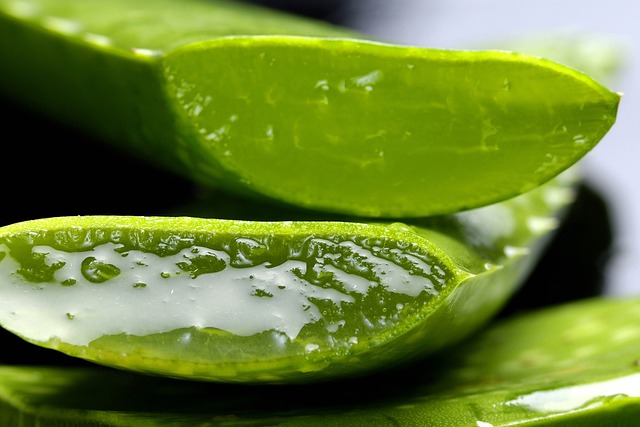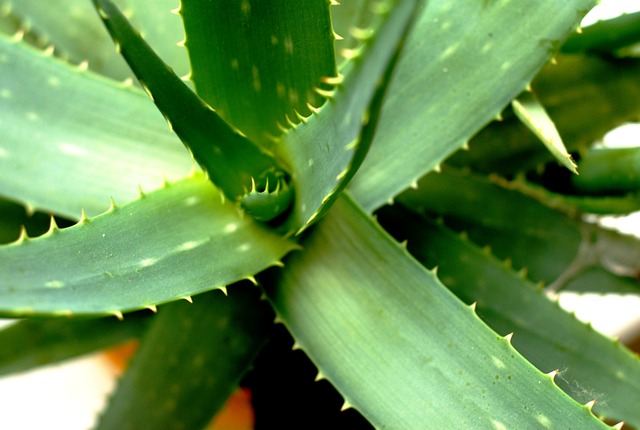
Mosquitoes can turn a pleasant evening into an itchy nightmare with their irritating bites. But before reaching for commercial remedies, consider a solution that might already be on your windowsill – aloe vera.
In this blog post, we’ll explore the practical and soothing benefits of using aloe for mosquito bites. Learn how this humble plant can be your ally in keeping that bothersome itchiness and redness at bay so you can enjoy your outdoor adventures in peace.
What’s Special About Aloe Vera?
Often referred to as the “plant of immortality,” aloe vera is a remarkable succulent with a rich history of medicinal and cosmetic use. This hardy plant, native to arid regions of North Africa, has become a staple in many households worldwide.
Aloe vera thrives in tropical and subtropical climates but is cultivated globally due to its incredible versatility. Its distinctive appearance features rosettes of thick, green leaves that taper to a point. These leaves are the treasure troves of aloe vera, containing a gel that is a gift to traditional medicine and modern skincare.
Aloe for Mosquito Bites
Aloe vera is a fantastic choice for soothing mosquito bites because it naturally combats inflammation, offers a cooling and comforting sensation, and moisturizes your skin.
Applying aloe vera gel provides quick and natural relief, making it an excellent choice for alleviating the discomfort and irritation caused by mosquito bites.
What Makes Mosquito Bites Itch?
But what exactly makes mosquito bites so uncomfortable in the first place? Why does using aloe for mosquito bites work so well?
When a mosquito bites, it deposits its saliva under your skin. This saliva contains proteins that prevent your blood from clotting while the mosquito feeds, triggering your body’s immune response.
Your immune system recognizes these foreign proteins and releases histamines, chemicals that help your body respond to the perceived threat.
Histamines cause blood vessels around the bite to dilate, resulting in redness and swelling at the site. However, histamines also stimulate nerve endings in your skin, causing that frustrating sensation of itching. While scratching can offer temporary relief, it can further irritate the skin and prolong the healing process.
Why You Should Use Aloe for Mosquito Bites
Aloe vera is indeed a handy natural remedy for soothing the discomfort caused by mosquito bites. Here’s how it can help:
Anti-Inflammatory Properties: Aloe vera has anti-inflammatory properties that can help reduce the redness, swelling, and itching associated with mosquito bites.
Cooling Sensation: The gel from the aloe vera plant has a natural cooling effect when applied to the skin. That’s why you typically use aloe vera gel whenever you have a sunburn or mild burn from cooking.
Moisturization: Aloe vera gel is an excellent moisturizer for the skin. It helps to keep the affected area of the skin hydrated, preventing it from drying out and potentially worsening the itchiness and irritation caused by mosquito bites.
Antimicrobial Properties: Aloe vera also possesses mild antimicrobial properties. While mosquito bites are not typically at risk of infection, excessive scratching can break the skin and potentially introduce bacteria. Aloe vera’s antimicrobial effects may help reduce the risk of infection when applied to the affected area.

Here’s how you can use aloe for mosquito bites:
- Clean the affected area gently with mild soap and water. Pat it dry with a clean towel.
- Extract fresh aloe vera gel from a leaf or store-bought aloe vera gel. Ensure it is pure and free from added chemicals or fragrances.
- Apply a thin layer of the aloe vera gel directly to the mosquito bite. You can use a cotton swab or your fingertip.
- Allow the aloe vera gel to dry on the skin.
- Reapply the gel daily to relieve itching and discomfort.
- Avoid excessive scratching of the mosquito bite, as this can worsen the inflammation and potentially lead to infection.
Here’s a helpful video that will teach you how to extract aloe for mosquito bites at home!
Aloe vera is generally safe and well-tolerated by most people. However, if you notice any signs of an allergic reaction or worsening of symptoms after applying aloe vera gel, discontinue use and consult a healthcare professional. For severe mosquito bite reactions or
if you experience symptoms such as fever or extreme swelling, it’s essential to seek medical attention.
Eliminating Mosquitoes in Raleigh, NC
Raleigh, North Carolina, provides an ideal breeding ground for mosquitoes due to its warm and humid subtropical climate and numerous bodies of water, including ponds, lakes, and streams.
Mosquito activity tends to increase during the warm and wet months, common in Raleigh during the spring and summer. These conditions promote the hatching and growth of mosquito larvae.
Using aloe for mosquito bites can help you after the fact, but for actual protection against mosquitoes, you’ll need a trusted Raleigh pest control expert to keep these pests from taking over your yard. That’s where we come in!
Discover relief from mosquitoes with Innovative Pest Solutions! Our expert team is here to eliminate and protect your home from these pesky insects. Say goodbye to mosquito worries– contact us today!





